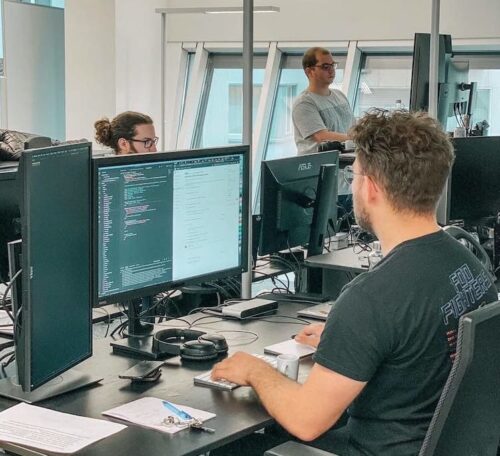Looking Back on Our TechTalkThursday #25
Our third TechTalkThursday in 2025 – it was number 25 of our…
We'd like to provide you with regular information, news, background reports and recommendations about new technologies, market trends in cloud computing and IT infrastructures, product innovations and our company.
Our third TechTalkThursday in 2025 – it was number 25 of our…
«Digitalisation is the path to a sustainable future.» This statement applies in…
Our second TechTalkThursday this year was number 24 of the event series…
Data protection is no longer just a «nice to have» – for…
One common pattern we've observed at Nine is that many of our…
The first TechTalkThursday in 2025 – and number 23 of the event…
Our TechTalkThursday #22 took place on the 5th of Dezember 2024 at…
With the first snow, we were enticed by the mountains: Our coworking…
Web development has evolved significantly, with numerous tools and frameworks streamlining the…
Every company wants its products and services to be seen. This requires…
In today’s rapidly evolving tech landscape, modern systems like Kubernetes are often…
At Nine, we’ve been hard at work refining Deploio, our platform for…
Do you have any questions about our products? Either contact Sales or go directly to your cockpit to see all the possibilities at Nine.
